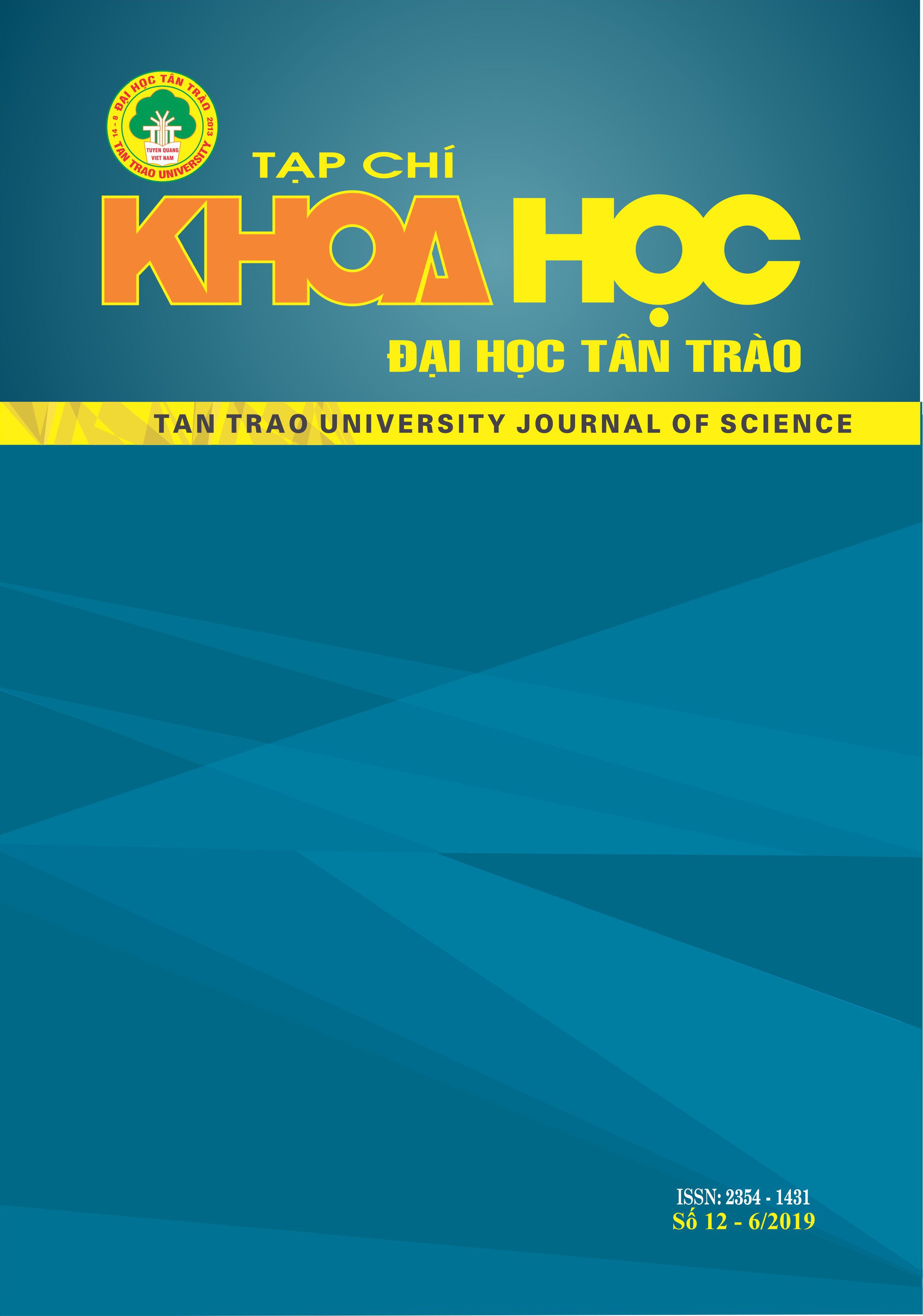Basic rehabilitation method for children with developmental disorders
DOI:
https://doi.org/10.51453/2354-1431/2019/275Keywords:
Rehabilitation; Rehabilitation methods; children; autistic children; children with developmental disordersAbstract
Children with increasing developmental disorders make parents anxious and difficult to educate their children. There are many hospitals, centers, and rehabilitation facilities for children with developmental disorders but different places, different methods and inconsistencies are implemented. This article introduces some basic rehabilitation methods for children with developmental disorders to help families, schools, and educational facilities to educate children and students in medicine, psychology, and public Social and special education has more direction information on these interventions.
Downloads
References
1. Bộ Y Tế (2009), Tài liệu số 15 “Phục hồi chức năng trẻ tự kỷ” trong Bộ tài liệu “Phục hồi chức năng dựa vào cộng đồng” ban hành kèm theo Quyết định số 1213/QĐ-BYT ngày 15/4/2009.
2. Bộ LĐ-TB&XH phối hợp trường Đại học sư phạm Hà Nội (2018), Tài liệu Hội thảo Hoàn thiện đề cương tài liệu hỗ trợ phục hồi chức năng cho trẻ em tự kỷ ở Việt Nam, tháng 9, Hà Nội,
3. Đại học Y Hà Nội (2010), Tài liệu Vật lý trị liệu phục hồi chức năng - Nhà xuất bản Y học Hà Nội 2010.
4. Hội khoa học Tâm lý – Giáo dục Việt Nam (2019), Phát triển năng lực chuyên môn và đổi mới quản lý trong hoạt động can thiệp trẻ có rối loạn phát triển, NXB ĐHQG, Hà Nội.
5. Nguyễn Thị Thanh (2014), Biện pháp phát triển kỹ năng giao tiếp cho trẻ tự kỷ 3-4 tuổi, Luận án Tiến Sỹ Khoa học giáo dục, Bộ giáo dục và đào tạo, Viện Khoa học giáo dục Việt Nam.
6. Đỗ Thị Hương Thảo (2013), “Các yếu tố ảnh hưởng đến hiệu quả của quá trình can thiệp sớm cho trẻ rối loạn phổ tự kỷ”, Báo cáo khoa học toàn văn, Viện khoa học giáo dục Việt Nam, tr.57 - 62.
7. Nguyễn Xuân Thắng (2012), “Đánh giá sự cải thiện kỹ năng phát triển của trẻ bị tự kỷ sau can thiệp ngôn ngữ trị liệu”, Luận văn Bác sỹ chuyên khoa cấp II, Đại học Y Hà Nội.
Downloads
Published
How to Cite
Issue
Section
License

This work is licensed under a Creative Commons Attribution-ShareAlike 4.0 International License.
All articles published in SJTTU are licensed under a Creative Commons Attribution-ShareAlike 4.0 International (CC BY-SA) license. This means anyone is free to copy, transform, or redistribute articles for any lawful purpose in any medium, provided they give appropriate attribution to the original author(s) and SJTTU, link to the license, indicate if changes were made, and redistribute any derivative work under the same license.
Copyright on articles is retained by the respective author(s), without restrictions. A non-exclusive license is granted to SJTTU to publish the article and identify itself as its original publisher, along with the commercial right to include the article in a hardcopy issue for sale to libraries and individuals.
Although the conditions of the CC BY-SA license don't apply to authors (as the copyright holder of your article, you have no restrictions on your rights), by submitting to SJTTU, authors recognize the rights of readers, and must grant any third party the right to use their article to the extent provided by the license.


